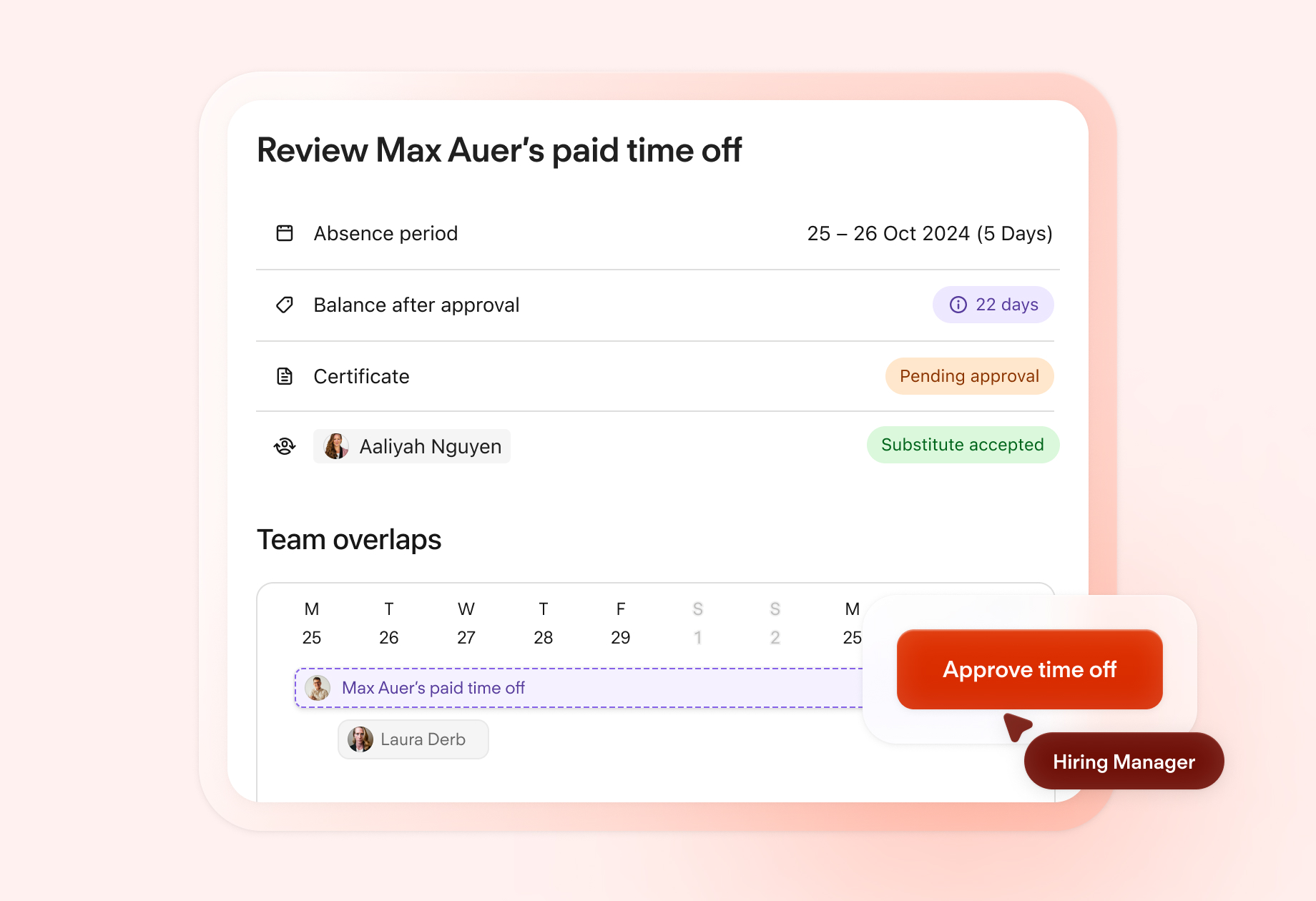How do you boost employee motivation?

Employee motivation is critical to employee performance. After all, employees who enjoy their work and are 100% engaged are what every HR manager and CEO wants. The best part? It doesn't take much to make this happen. In this article, we share practical ideas that you can use to keep your employees’ motivation consistently high.
What is employee motivation?
Employee motivation is an important tool in managing and developing staff and helps increase employees’ performance by providing appropriate incentives. For employers, this is about shaping employees’ attitudes and actions to produce a positive effect on their performance. Motivation can be extrinsic or intrinsic.
Extrinsic motivation
This includes all external motivation incentives: For example, if an employee meets requirements a, b and c, they’ll be rewarded, for example in the form of a promotion.
Intrinsic motivation
This includes all motivation incentives that originate from within employees themselves. These include employees enjoying their work or feeling a sense of responsibility.
Why is employee motivation important?
According to the 2020 Peakon Employee Expectations Report, 59% of the employees surveyed worldwide feel demotivated (data from January 2020). This is an alarming statistic if one considers that 80million employees were surveyed for the report.
For companies, this means costs, above all. According to a Gallup study, the overall financial cost of employee disengagement may amount to as much as €118.4 billion per year in Germany alone. On average, the performance of demotivated or disengaged employees goes down by 34%. Companies therefore need to address this problem.
But what causes this widespread demotivation? According to the 2020 Employee Expectations Report, there is a gap between what employees expect and what employers offer, e.g. in terms of flexible working hours.
At the same time, the Gallup study shows that good leadership is essential for employee motivation. And good leadership requires managers who know how to coach their staff rather than issue demotivating top-down orders. This is a crucial factor for employees’ emotional loyalty to a company.
These are the 10 people management skills that can help boost motivation in your org.
Intrinsic motivation promotes lasting engagement
There is a lot companies can do to boost their employees’ motivation. Naturally, extrinsic incentives such as salary increases or promotions are effective in ensuring a certain degree of motivation. However, you’ll need to foster employees’ intrinsic motivation to generate long-term engagement.
After all, employees want to feel that they are making a meaningful contribution if they are to enjoy their jobs. Managers play a key role in promoting such an environment, as they can share praise, provide feedback, launch initiatives and set goals to make employees understand the extent to which their performance shapes the company’s success.
Checklist: 12 measures for boosting employee motivation
Employers can implement just a few targeted measures to improve their employees’ engagement. We have collated a guide of things you can do to inspire your staff.
1. Praise
These magical six letters can have a powerful effect. After all, who doesn’t like being praised by their manager or colleagues at the conclusion of a project? If you want to motivate employees, you need to tell them when they have performed well. You can do this in the form of praise, but you can also use constructive criticism and general feedback.
2. Clear and open communication
When things do go wrong, this is often caused by misunderstandings arising from ambiguous communication. This may result in employees taking different expectations and goals from meetings and then becoming demotivated when they realize that their efforts have been in vain. Avoid this by making clear statements and summarizing key points at the end of a meeting to ensure that everybody is on the same page.
3. Responsibility and trust
Nobody likes micro-management. Therefore, you need to be able to let go if you want to maintain a high level of employee engagement. Delegate projects to your employees and give them autonomy so that they can prove their skills and knowledge. This will boost their confidence.
4. Meaningful work
Your employees must understand the contribution their work makes toward supporting the company’s strategy. Include this aspect in your feedback process to ensure that employees and managers are in a constant exchange about employees’ roles.
5. Leadership
Managers should lead by example and be visibly engaged and motivated if they want to boost their employees’ morale and efficiency and gain their respect. This can prepare the ground for effective meetings, but a positive attitude is also helpful when things aren’t going well at times.
6. Personal goals
Personal goals mean that people have something they can work toward. This motivates employees and encourages them to perform at their best. It is therefore helpful to set intermediate monthly or quarterly goals (which do not need to be tied to financial rewards) so that your employees can work toward clear goals.
Read this article to find out how best to word goals.
7. A positive error culture
How your company deals with mistakes has a major impact on your employees’ motivation and engagement. Are mistakes accepted and used as learning tools, or is everybody scared to try out new things because mistakes are "punished”? A positive error culture boosts your employees’ commitment even when they work on risky projects.
8. Salary
While salaries tend not to be the greatest motivation incentive for most employees, fair remuneration is an expression of how much you appreciate your employees. You should therefore reward good work with salary increases.
9. Celebrating success
Successfully completed projects should be celebrated by the whole team, especially when they constituted a major milestone. This boosts the team spirit and motivates employees ahead of the next project.
10. Flexible working hours
A global study by Buffer and AngelList found that 98% of the surveyed employees wanted more flexible work arrangements, particularly with a view to being able to work from anywhere, including from home. Employers should meet these expectations to promote a positive work/life balance and foster employees’ loyalty to the company.
A Motivating Corporate Culture

Defining, sharing and living values: Your corporate culture forms the basis for cultivating your employees’ engagement and motivation. This guide shows you how.
Download Now11. Promoting development
When employees are able to continuously build on their specialist knowledge and soft skills and then apply their new abilities, they are more motivated to perform. After all, monotonous work is the biggest demotivating factor of all. Job rotation and job enrichment can be two effective internal initiatives, in addition to providing regular staff development seminars and coachings.
12. Food, drinks and exercise
Sometimes the little things in life can make a big difference. If you provide your employees with free food and beverages, you are demonstrating that you take an interest in their overall well-being, which can boost their motivation and enhance employee loyalty.

